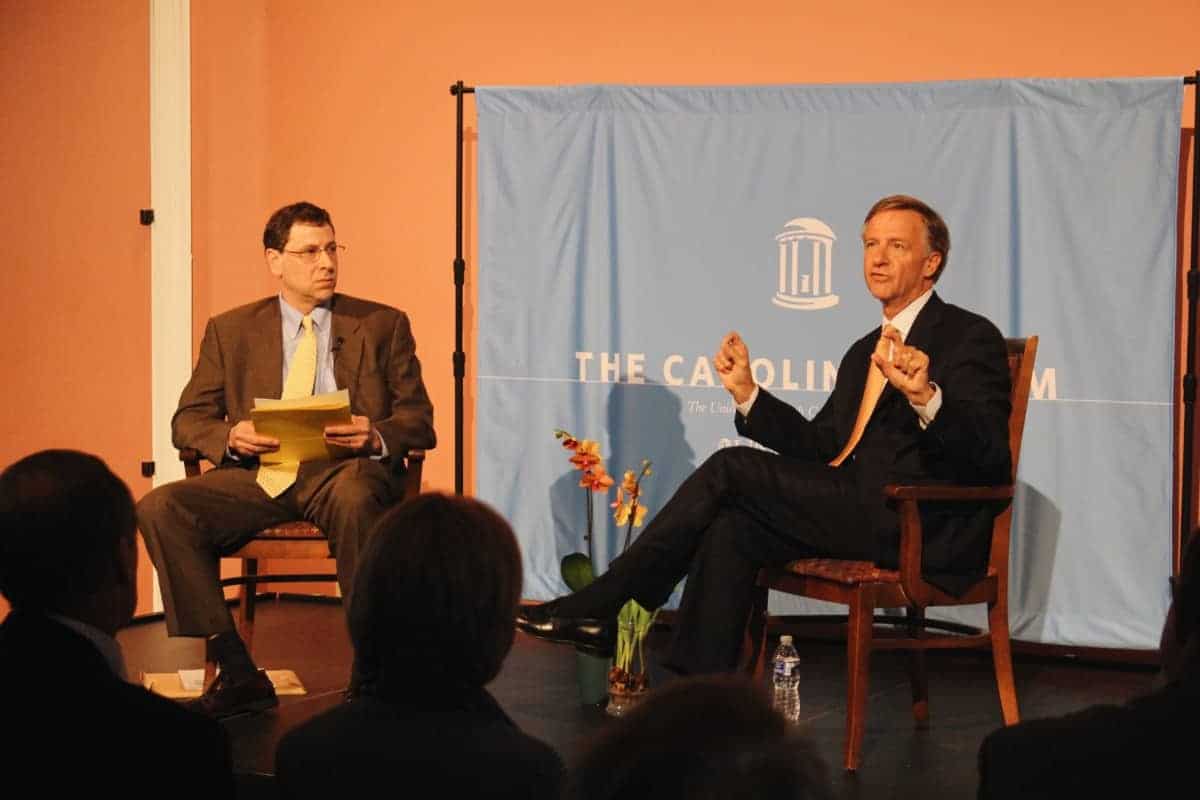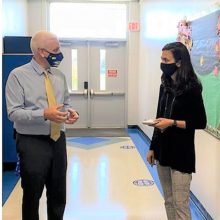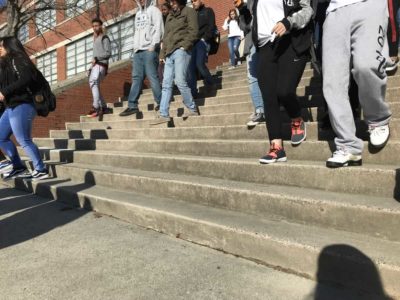Following a business career that included serving as a chief executive officer for Saks Fifth Avenue, Governor Bill Haslam was not sure public office was for him. When it came time to elect a new mayor of Knoxville in 2003, Haslam had zero interest in running.
Then, during a 20-mile bike ride with then-Chattanooga mayor Bob Corker, a conversation about the impact of serving in public office convinced Haslam to announce a candidacy for the mayor of Knoxville. The position would later provide Haslam with the valuable experience needed to launch a campaign for governor.
Now, Haslam is finishing his second term serving as Tennessee’s governor. Gov. Haslam is widely referred to as the “education governor” for his leadership surrounding large reforms in both K-12 and post-secondary education across the state.
On Monday night, Gov. Haslam spoke at The Carolina Forum, a non-partisan discussion and deliberation gathering hosted by the public policy department at UNC-Chapel Hill.
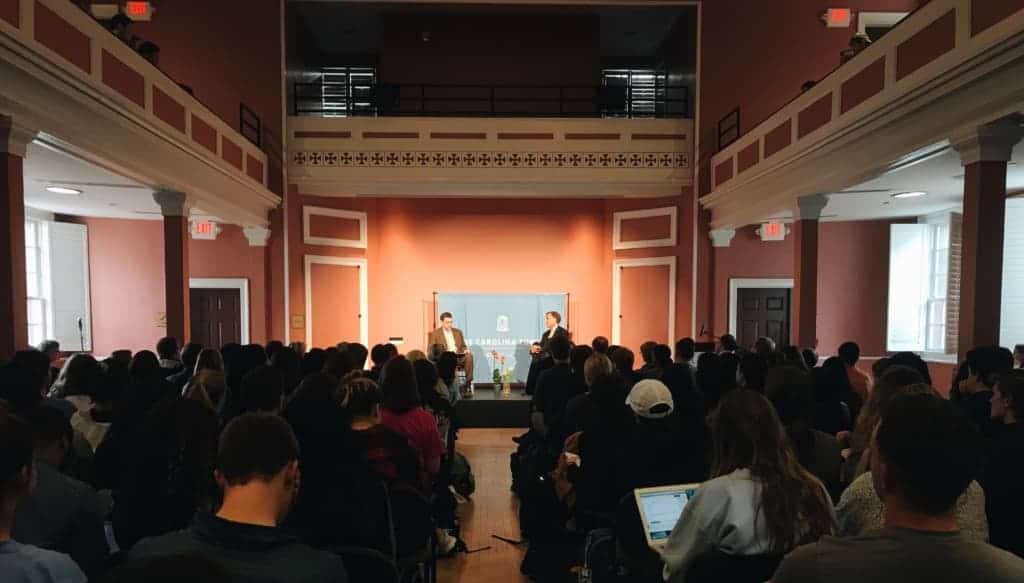

Education initiatives in Tennessee during Haslam’s time in office include:
- Investing an additional $1.3 billion in K-12 education, including more than $50 million to increase teacher salaries.
- Launching the Drive to 55 Alliance with the goal of getting 55 percent of Tennesseans equipped with a college degree or certificate by 2025.
- Implementing an education evaluation system, Tennessee’s Value-Added Assessment System, that provides teacher’s with vital information about students’ growth.
- Providing every student with a path to college tuition-free through Tennessee Promise, a scholarship and mentoring program that provides students with last-dollar scholarships to cover two years of post-secondary education at community colleges and technical schools.
- Launching Tennessee Reconnect, an initiative to help more adults enter higher education to gain new skills and advance in the workplace.
Dr. Daniel Gitterman, chair of the UNC department of public policy, moderated the event and asked Haslam to comment on these accolades. Gov. Haslam, a Republican, reflected on the reasons he has focused on investing in public education during his time in office.
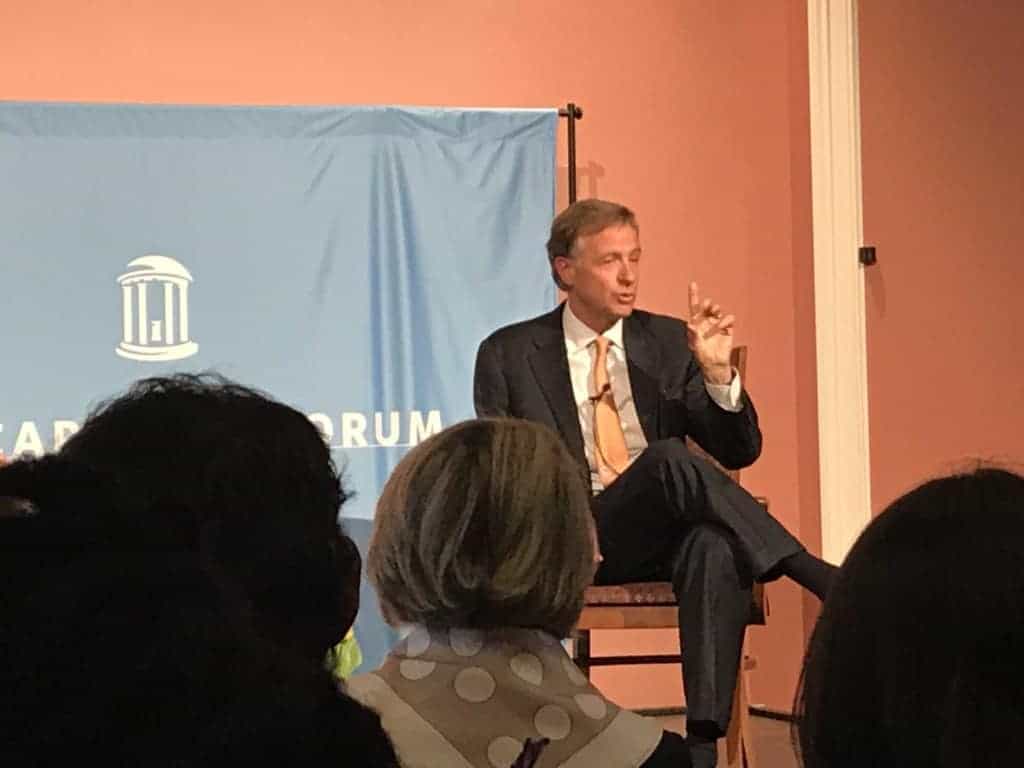

“Regardless of what your politics are, you have to agree that income inequality is a huge issue in our country and getting worse. The question is: What are you going to do about it?” said Gov. Haslam. “As a Republican, I’m weary of some of the government programs that I think we spent a kajillion dollars on and I’m not sure if we have the results. The flip side of that is public education, and given the opportunity there, I think [education] really does provide that opportunity.”
UNC President Margaret Spellings introduced Haslam, noting that his success and growing legacy in Tennessee serves as a model for higher education.
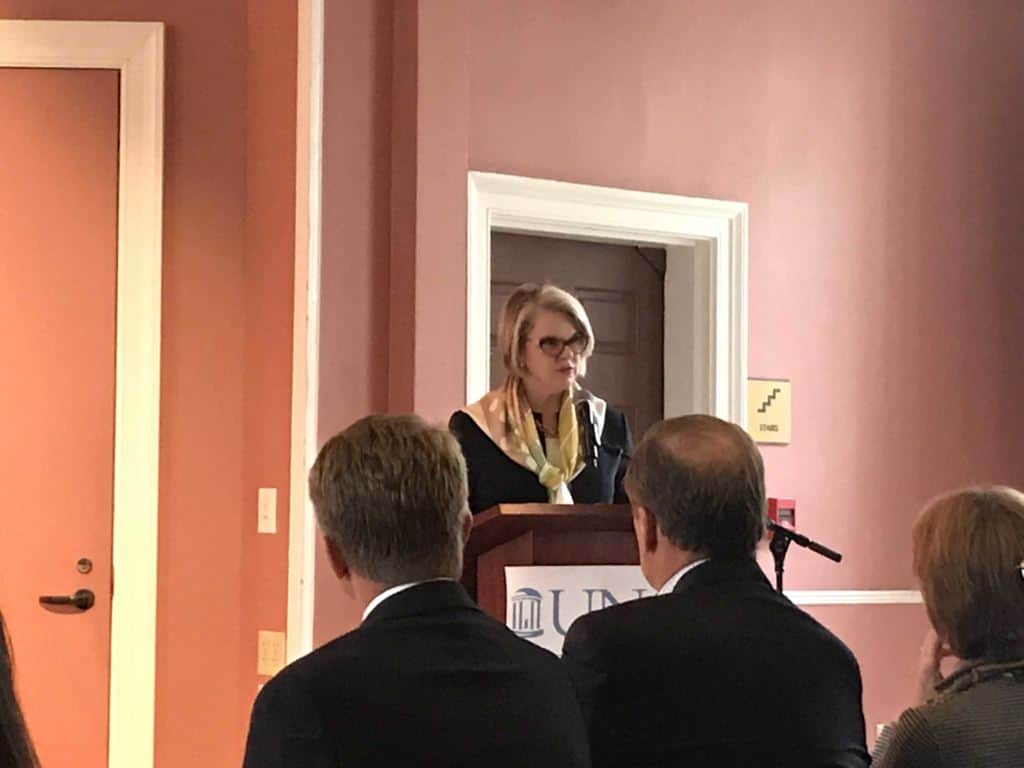

“It’s no secret that today’s jobs and certainly tomorrow’s jobs require education beyond high school. But nationwide, the political will to act on that reality hasn’t always been there — but that’s not the case in Tennessee,” said Spellings.
“That’s because Governor Haslam has led a political realization that the success of a state and its people depend on how well it builds a college-going culture, which we need to do more of here, and a new model for delivering higher education to the vast majority of its citizens.”
Spellings noted that North Carolina’s myFutureNC Commission draws on Gov. Haslam’s leadership in many ways as Tennessee provides an example of the bold statewide goal-setting and coalition-building that’s necessary to prepare a state for the future.
The event included a question and answer session with audience members where the governor answered questions about topics including opiods, gun control, and his continued service in public office.
Blythe Gulley, a sophomore at UNC-Chapel Hill and a Knoxville native, asked Haslam what he hoped to see in the future for the state of Tennessee.
“My biggest fear is that we not give back ground we’ve made — particularly in education. We’ve been in the 40’s in the state rankings forever, and now we’ve worked our way all the way up to the into the mid-to-high 20’s which is not great, but it’s still a whole lot better. To get there, a lot of people made hard decisions that took a lot of courage,” said Gov. Haslam. “You always worry that there won’t be a sense of exactly what were the steps that the state made to get to where we are, and what are the next steps that need to happen.”
